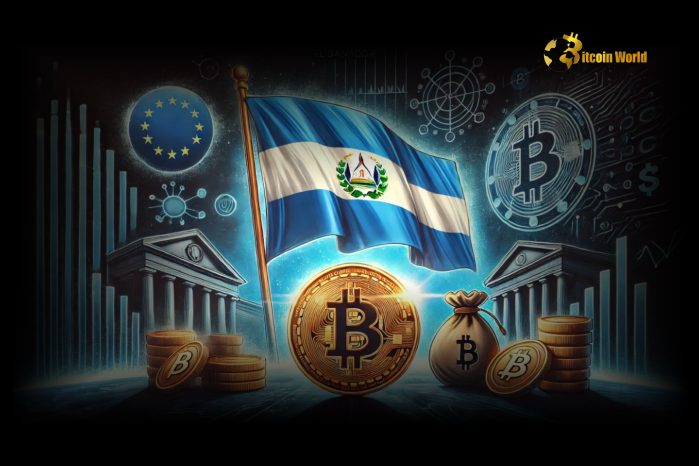El Salvador Adjusts Bitcoin Policies to Secure $3.5 Billion IMF Deal
El Salvador, the first country to adopt Bitcoin as legal tender, has made significant adjustments to its cryptocurrency policies as part of a $3.5 billion funding agreement. This deal includes $1.4 billion from the International Monetary Fund (IMF), marking a pivotal step in the nation’s financial strategy while maintaining Bitcoin’s legal tender status.
Bitcoin Policy Changes for IMF Compliance
El Salvador’s government has agreed to modify several aspects of its Bitcoin policies to meet the IMF’s conditions for funding. These changes include:
- State-Run Chivo Wallet: Plans to either sell or dismantle the government-managed Chivo wallet, which previously played a key role in Bitcoin transactions.
- Voluntary Bitcoin Acceptance: Private-sector businesses are no longer required to accept Bitcoin as payment, making participation entirely optional.
- Tax Payments in USD: All tax obligations must now be settled in U.S. dollars, moving away from Bitcoin as an alternative payment method for taxes.
Despite these concessions, Bitcoin will remain legal tender in El Salvador, and the government will continue its strategy of acquiring and holding Bitcoin in its national reserves.
El Salvador’s Bitcoin Reserves
As of now, El Salvador holds 5,968 BTC, valued at approximately $596 million. The government plans to bolster its Bitcoin reserves, leveraging the cryptocurrency’s long-term growth potential.
While Bitcoin-related initiatives are being restructured, education programs and the development of cryptocurrency capital markets will proceed as planned, aiming to position El Salvador as a leader in digital currency innovation.
Balancing Bitcoin Adoption and Economic Stability
El Salvador’s bold experiment with Bitcoin has garnered international attention but also faced criticism from global financial institutions. The IMF had previously raised concerns about the risks associated with Bitcoin adoption, including financial instability and potential misuse for illicit activities.
By implementing these policy changes, El Salvador seeks to strike a balance between its ambitious Bitcoin strategy and the requirements of traditional financial systems.
Key Impacts of the Policy Adjustments
1. Chivo Wallet Restructuring
The Chivo wallet, designed to facilitate Bitcoin transactions, has been at the center of El Salvador’s Bitcoin adoption strategy. However, technical issues and low adoption rates among citizens prompted the government to rethink its approach. Selling or dissolving the wallet will align with the IMF’s recommendations while allowing private enterprises to step in with alternative wallet solutions.
2. Voluntary Bitcoin Acceptance
Allowing businesses to opt out of accepting Bitcoin could improve relations with private-sector stakeholders, many of whom had expressed concerns about mandatory adoption. This move aligns El Salvador’s policies with global norms, where cryptocurrency usage is typically voluntary.
3. Taxation in USD
Requiring taxes to be paid in U.S. dollars reduces the risks of price volatility associated with Bitcoin, providing greater stability for public finances.
Future of Bitcoin in El Salvador
Despite these changes, El Salvador remains committed to Bitcoin as part of its economic strategy. The government’s continued acquisition of Bitcoin reflects confidence in the cryptocurrency’s potential as a store of value.
Additionally, initiatives to educate citizens about cryptocurrency and foster a robust capital markets ecosystem highlight the government’s broader vision for integrating digital currencies into the economy.
Global Reactions to El Salvador’s Bitcoin Policies
El Salvador’s Bitcoin journey has been met with mixed reactions on the global stage. Advocates praise the nation’s pioneering efforts to embrace financial innovation, while critics highlight the economic risks and challenges of implementing a national cryptocurrency strategy.
The recent concessions to the IMF may alleviate some concerns among international stakeholders, potentially paving the way for further financial support and investment.
FAQs About El Salvador’s Bitcoin Policy Adjustments
What changes are being made to El Salvador’s Bitcoin policies?
The government is ending or selling the state-run Chivo wallet, making Bitcoin acceptance voluntary for private businesses, and requiring taxes to be paid in U.S. dollars.
Is Bitcoin still legal tender in El Salvador?
Yes, Bitcoin remains legal tender in El Salvador despite the policy adjustments.
Why is El Salvador making these changes?
The changes are part of a $3.5 billion funding agreement, including $1.4 billion from the IMF, which required adjustments to Bitcoin policies for compliance.
What will happen to the Chivo wallet?
The government plans to either sell or shut down the Chivo wallet, allowing private solutions to fill the gap.
How much Bitcoin does El Salvador currently hold?
El Salvador holds 5,968 BTC, valued at approximately $596 million.
Conclusion
El Salvador’s revised Bitcoin policies demonstrate its commitment to balancing innovation with economic stability. By addressing global concerns and securing significant funding, the nation aims to strengthen its economy while maintaining its pioneering role in cryptocurrency adoption.
As the world watches El Salvador’s bold experiment unfold, the adjustments to its Bitcoin policies may serve as a model for other countries exploring the integration of digital assets into their financial systems.
To learn more about the innovative startups shaping the future of the crypto industry, explore our article on latest news, where we delve into the most promising ventures and their potential to disrupt traditional industries.
Disclaimer: The information provided is not trading advice, Bitcoinworld.co.in holds no liability for any investments made based on the information provided on this page. We strongly recommend independent research and/or consultation with a qualified professional before making any investment decisions.




